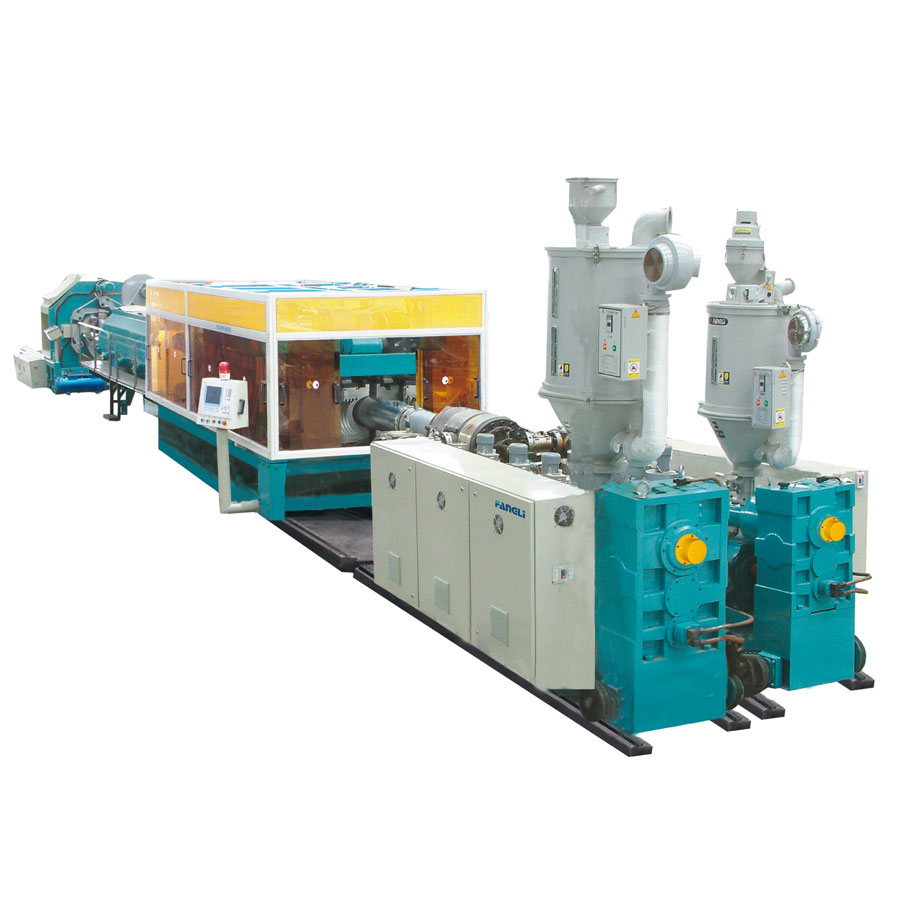Sustainable Solutions: Environmental Considerations with PEPP Double Wall Corrugated Pipe Extrusion Equipment
2024-03-30
Introduction:
In today's world, environmental sustainability is a top priority across industries. When it comes to manufacturing processes like extrusion for PEPP (Polyethylene Polypropylene) double wall corrugated pipes, understanding and addressing environmental considerations are essential. By examining the impact of this equipment on the environment and identifying sustainable practices, manufacturers can contribute to a greener future while maintaining efficiency and productivity. In this blog post, we'll explore the environmental considerations associated with using PEPP double wall corrugated pipe extrusion equipment and highlight ways to minimize its ecological footprint.
1. Material Selection:
The choice of raw materials is a crucial environmental consideration in extrusion processes. PE and PP resins used in double wall corrugated pipes are known for their recyclability and low environmental impact compared to traditional materials like metal or concrete. By selecting high-quality resins from reputable suppliers and prioritizing recycled content whenever possible, manufacturers can reduce resource consumption and minimize waste generation.
2. Energy Efficiency:
Energy consumption during the extrusion process is another significant environmental consideration. PEPP double wall corrugated pipe extrusion equipment can be optimized for energy efficiency through various measures, including the use of energy-efficient motors, heating systems, and cooling technologies. Additionally, implementing process optimization techniques such as reducing idle time, optimizing temperature profiles, and utilizing waste heat recovery systems can further minimize energy consumption and greenhouse gas emissions.
3. Waste Management:
Efficient waste management practices are essential for reducing the environmental impact of extrusion operations. PEPP double wall corrugated pipe extrusion equipment generates waste in the form of trimmings, rejects, and scrap material. Implementing recycling programs and waste reduction strategies can help minimize waste sent to landfills and promote the circular economy. Scrap material generated during the extrusion process can be reprocessed and reintroduced into the production cycle, reducing the need for virgin materials and conserving resources.
4. Emissions and Pollution Control:
Extrusion processes may generate emissions and air pollutants, such as volatile organic compounds (VOCs) and particulate matter. Implementing emission control measures, such as installing exhaust ventilation systems, using low-VOC additives, and optimizing combustion processes, can help mitigate air pollution and ensure compliance with environmental regulations. Additionally, implementing best practices for spill prevention, leak detection, and chemical handling can minimize the risk of environmental contamination and protect natural ecosystems.
5. Life Cycle Assessment:
Conducting a life cycle assessment (LCA) of PEPP double wall corrugated pipe extrusion equipment can provide valuable insights into its environmental impact throughout its entire life cycle, from raw material extraction to manufacturing, transportation, use, and end-of-life disposal. By quantifying environmental impacts such as carbon footprint, energy consumption, and resource depletion, manufacturers can identify opportunities for improvement and implement strategies to enhance sustainability across the supply chain.
Conclusion:
In conclusion, environmental considerations play a significant role in the use of PEPP double wall corrugated pipe extrusion equipment. By prioritizing sustainable practices such as material selection, energy efficiency, waste management, emissions control, and life cycle assessment, manufacturers can minimize the environmental impact of their operations while producing high-quality piping solutions. Embracing sustainability not only benefits the environment but also enhances corporate reputation, regulatory compliance, and long-term business viability. As the demand for environmentally friendly solutions continues to grow, integrating sustainable practices into extrusion processes becomes increasingly essential for driving innovation and fostering a greener future.



